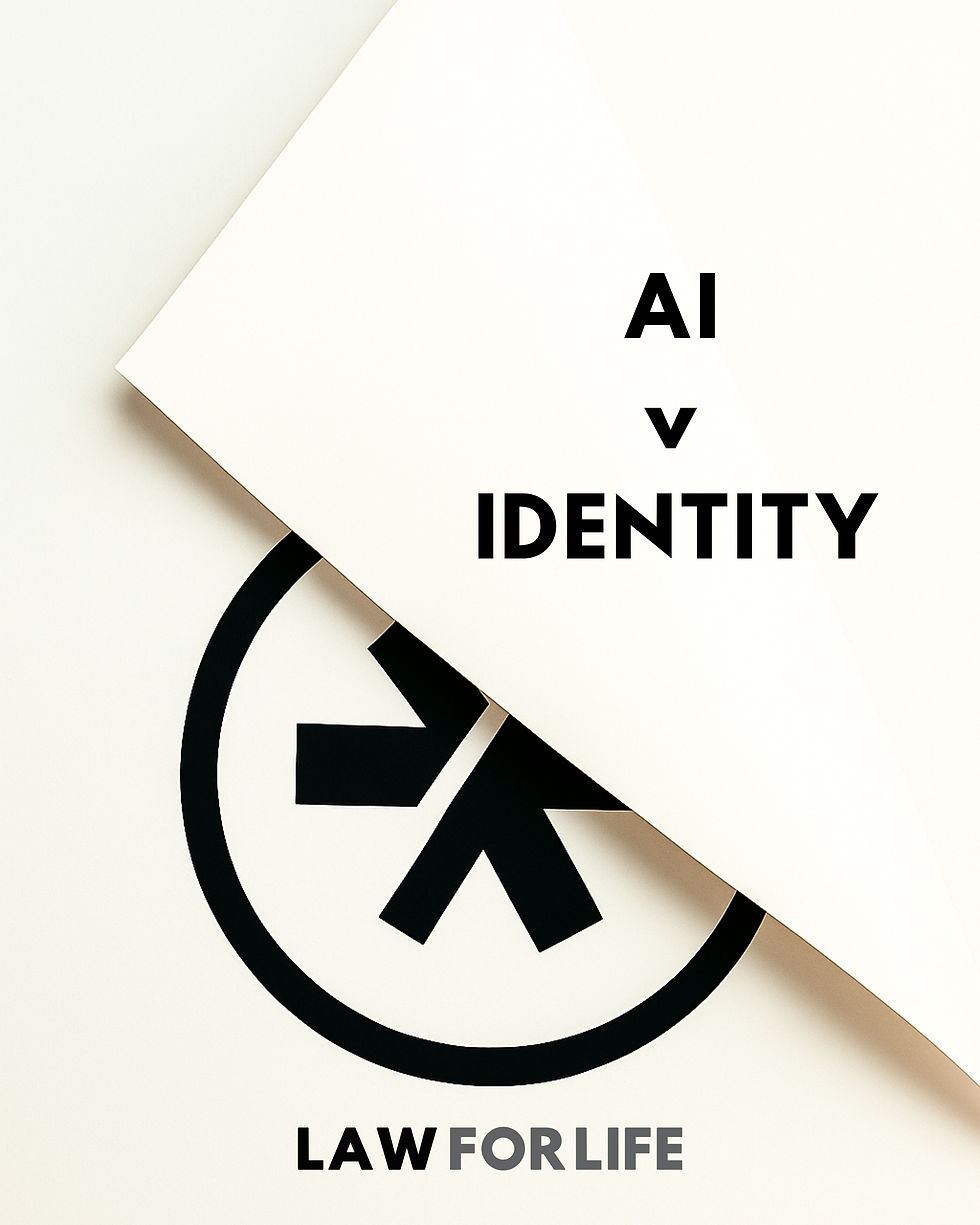AI VS IDENTITY: WHAT DENMARK’S NEW FACIAL PROTECTION LAWS MEAN FOR THE WORLD — AND FOR YOU.
- JOHN COMNINOS
- Jul 24, 2025
- 3 min read
Updated: Jul 31, 2025
In a landmark move that’s stirring conversations across global legal and tech circles, Denmark has passed new legislation that gives citizens stronger control over the use of their face and image in the age of artificial intelligence. It’s a game-changer — one that redefines the intersection of privacy, technology, and intellectual property.
But what exactly are these laws? Why do they matter? And how should South African citizens, creators, business owners, and legal practitioners respond?
What Has Denmark Done?
Denmark’s new law introduces “Facial Copyright” and AI-generated likeness protection — an aggressive legal stance to shield citizens from:
Unauthorised use of their facial features in AI-generated media (videos, avatars, deepfakes, etc.).
Commercial exploitation of their image without express consent.
The manipulation, simulation, or replication of their facial data through generative AI tools.
In short, your face is now your intellectual property. Think of it like a personal brand, trademark, or digital signature — no longer public domain simply because it’s been uploaded online.
Why Is This So Important?
The line between reality and simulation is blurring fast. AI tools like Sora, Midjourney, and Pika can now create hyper-realistic humans, voice clones, and entire films — based solely on a few photos or data inputs.
Without proper legislation, the risk of abuse is monumental:
Celebrities and influencers can be digitally recreated without consent — affecting reputation and earning potential.
Ordinary people’s images can be used in scams, explicit content, or political propaganda.
Children and vulnerable populations become fair game in the AI content wars.
Denmark’s law is the first serious attempt to say: “Enough.”
What This Means for South Africans
South Africa’s current legal framework — particularly POPIA, the Copyright Act, and common law principles of personality rights — offers some protection, but we are not yet aligned with this global trend.
Under South African law:
You can sue if someone uses your image commercially without consent.
You can rely on POPIA to object to unauthorised processing of personal biometric data.
But there is no specific law that prohibits the AI-generated use of your face or enshrines your facial data as copyright-protected IP.
We’re behind. And this legal lag puts every South African at risk.
Where Comninos Incorporated Stands
At Comninos, we’re pioneering digital rights advisory in South Africa. Our view is clear:
Your image, voice, and facial identity should be protected by law — especially in the era of AI.
Whether you’re an artist, executive, influencer, or private citizen — you deserve control over how your image is used.
The time to act is now: before your likeness becomes part of someone else’s content, campaign, or creation.
What You Can Do Right Now
Here’s what we recommend to our clients:
Review your digital footprint: Where are your images, voice, or likeness stored or shared?
Update contracts and releases: Ensure model releases, employment agreements, and influencer deals explicitly address AI use and likeness rights.
Register your brand and image rights: Where possible, include your image, style, and personal brand in your IP portfolio.
Join the advocacy movement: Push for South African legislative reform aligned with global best practice.
Seek legal advice: Comninos can help you prepare and protect.
Denmark may be small — but this legal step is massive. It signals the beginning of a global AI rights revolution, where identity, data, and dignity are no longer free currency for digital giants.
At Comninos, we’re watching these changes — and leading the conversation in South Africa.
If you want to take charge of your image rights, protect your personal brand, or draft AI-proof contracts, get in touch.
Your face is yours. Let’s keep it that way.
Contact Us
Visit www.comninoslaw.co.za or email john@comninoslaw.co.za

Comninos Incorporated | Attorneys | Law for Life



Comments